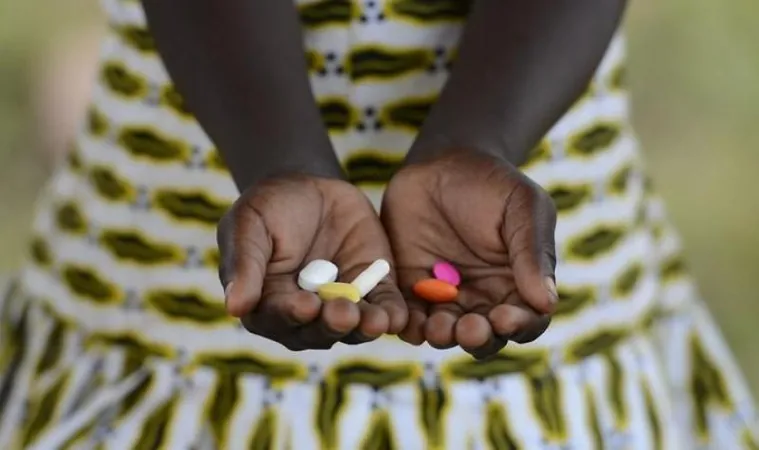
Shocking Findings: Macrolide Resistance Surges in African Children Post-Azithromycin Program!
2025-06-03
Author: Ming
A Groundbreaking Study Unveils Alarming Trends!
In a startling revelation, a new study from British and African scientists indicates that the mass distribution of azithromycin is linked to a troubling rise in macrolide resistance among children in Malawi. Published in *The Lancet Infectious Diseases*, researchers from the Malawi Liverpool Wellcome Research Programme and University College London uncovered that elevated levels of macrolide resistance in *Streptococcus pneumoniae* persisted even three and a half years after children received the antibiotic as part of a large-scale trial.
MORDOR Trial: A Double-Edged Sword!
The trial, known as MORDOR (Macrolides Oraux pour Réduire les Décès avec un Oeil sur la Résistance), aimed to assess the effectiveness of azithromycin in reducing childhood mortality in regions with high death rates. The results appeared promising, showing a significant 13.5% reduction in all-cause mortality among children aged 1 to 59 months. However, this apparent success has come with dire implications for antibiotic resistance.
Unforeseen Consequences: Rising Resistance Rates!
Researchers conducted follow-up studies among children aged 1 to 9 years in Malawi, discovering that macrolide resistance in *S. pneumoniae* escalated alarmingly. In those treated with azithromycin, resistance grew from 21.7% to 32.5% post-intervention, while placebo-treated groups also saw significant increases, pointing to a potential spillover effect of resistance.
Urgent Call for Surveillance!
This study underscores an urgent need for ongoing antimicrobial resistance surveillance in mass drug administration programs. The authors warned, "Without timely detection and intervention, these troubling trends could soon become irreversible." They emphasized the importance of monitoring as macrolide-resistant strains could pose substantial risks not just locally but globally.
The Danger of Multidrug Resistance!
The research also revealed concerning levels of multidrug resistance among children in both azithromycin and placebo groups—41.1% and 43.2% respectively, against only 22.8% in non-MDA sites. This alarming data signifies that antibiotic pressure from mass treatments could have far-reaching health implications.
A Complex Relationship: Antibiotics and Resistance!
Notably, the study's findings challenge previous research suggesting that resistance diminishes once antibiotic use ceases, highlighting a complex relationship between antibiotic exposure and resistance levels. The potential for these resistant strains to propagate underscores the critical need for stringent monitoring and management of antibiotic use.
A Call to Action!
The researchers advocate for robust antimicrobial stewardship to strike a balance between the immediate benefits of interventions and the long-term risks of escalating antimicrobial resistance. They warn, "Macrolide resistance has not returned to pre-exposure levels, emphasizing the dire need for continued surveillance to determine if this resistance is becoming entrenched in the population."

 Brasil (PT)
Brasil (PT)
 Canada (EN)
Canada (EN)
 Chile (ES)
Chile (ES)
 Česko (CS)
Česko (CS)
 대한민국 (KO)
대한민국 (KO)
 España (ES)
España (ES)
 France (FR)
France (FR)
 Hong Kong (EN)
Hong Kong (EN)
 Italia (IT)
Italia (IT)
 日本 (JA)
日本 (JA)
 Magyarország (HU)
Magyarország (HU)
 Norge (NO)
Norge (NO)
 Polska (PL)
Polska (PL)
 Schweiz (DE)
Schweiz (DE)
 Singapore (EN)
Singapore (EN)
 Sverige (SV)
Sverige (SV)
 Suomi (FI)
Suomi (FI)
 Türkiye (TR)
Türkiye (TR)
 الإمارات العربية المتحدة (AR)
الإمارات العربية المتحدة (AR)